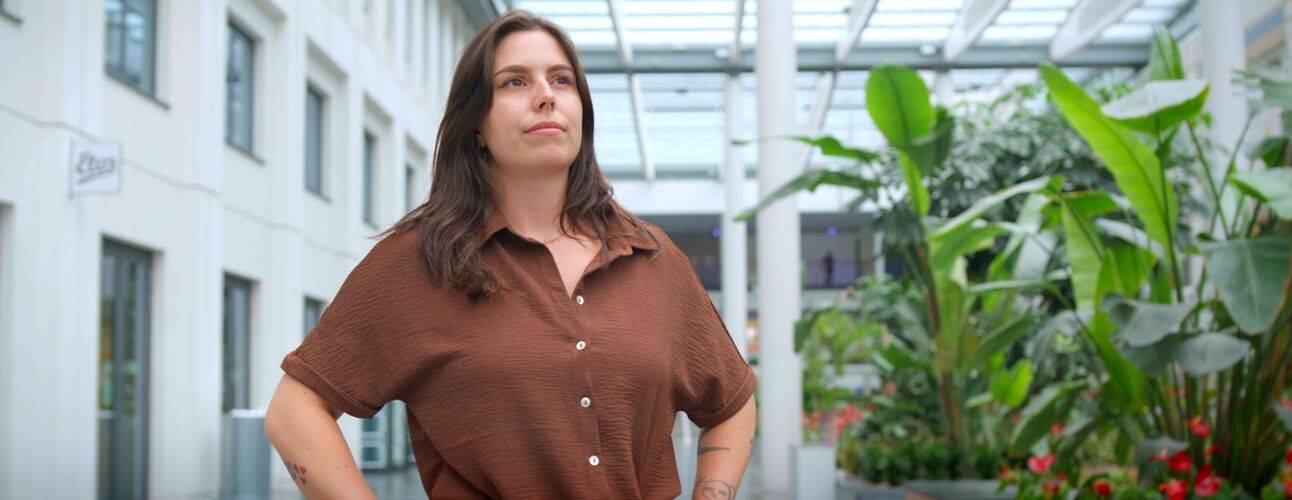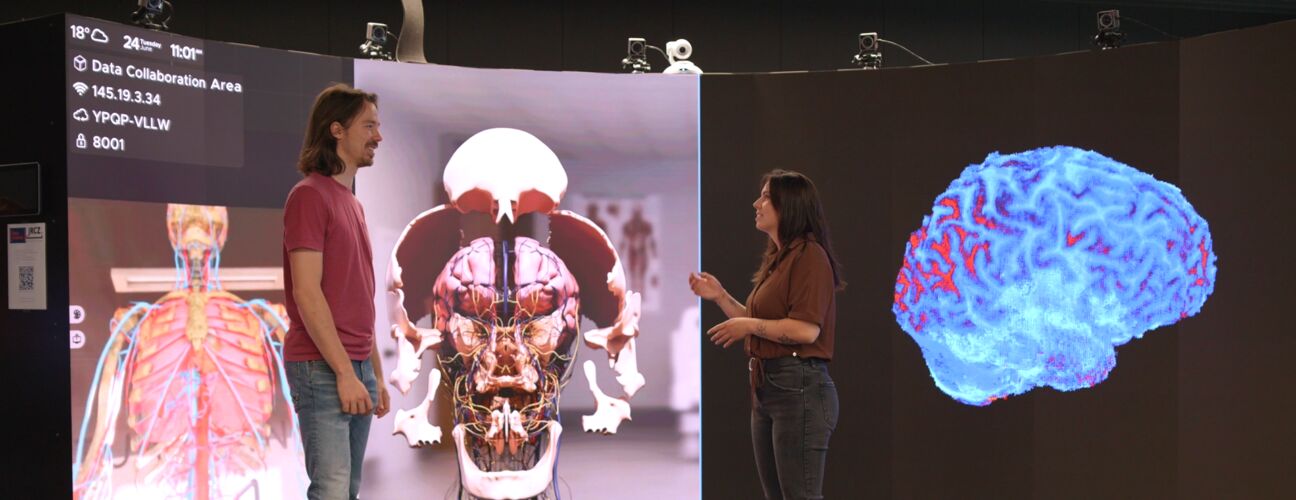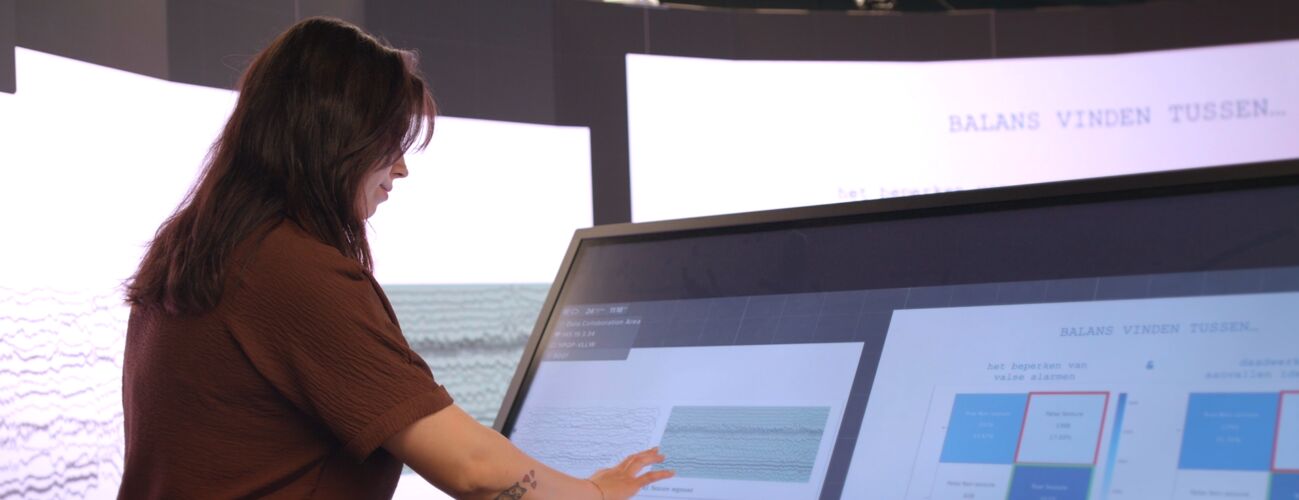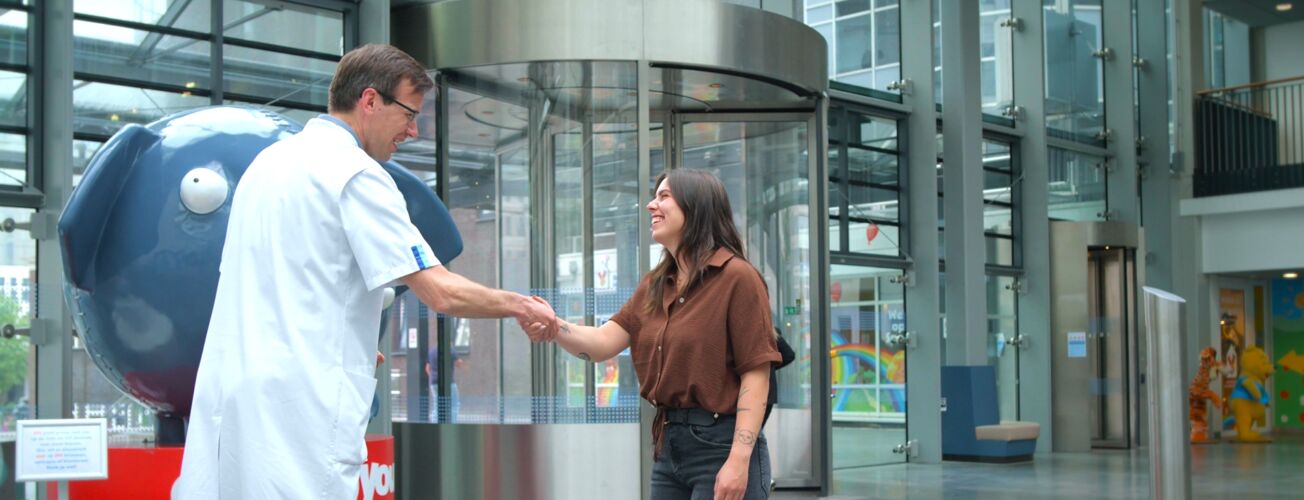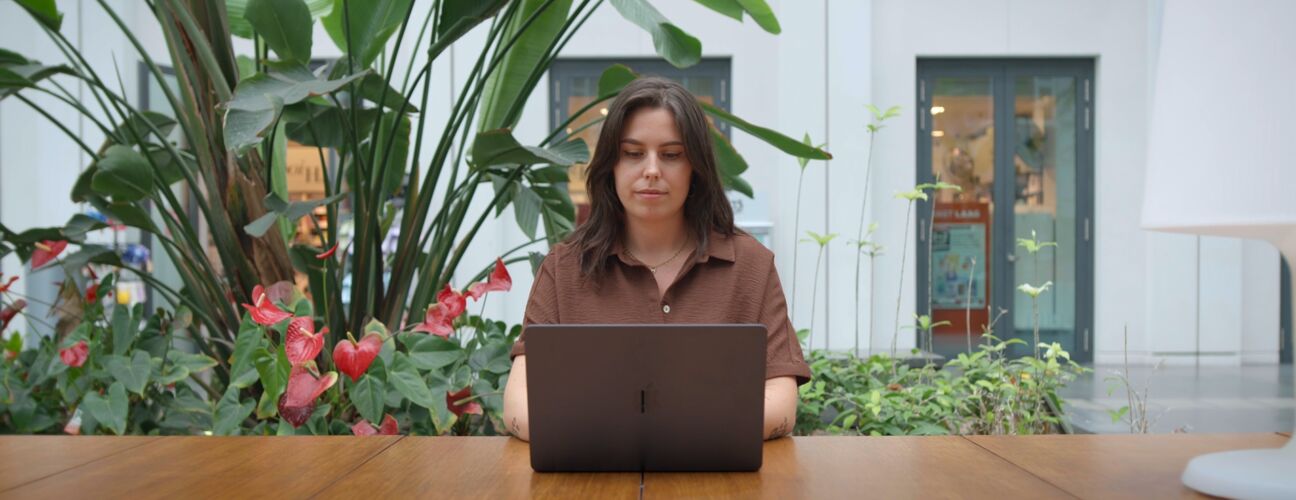Angélique Huige conducts research into the application of artificial intelligence within the healthcare sector. Her goal? To help people by developing smart technologies for the healthcare sector.
When it was time for Angélique to choose a course of study, she wasn't sure exactly what she wanted to do. She found many things interesting: languages, psychology and philosophy. In the end, she opted for a bilingual vocational training programme: International Business Studies. During her studies, Angélique did an internship at a tech company in Stockholm, where she worked on the website and coded HTML. After obtaining her vocational diploma, Angélique enrolled in the bachelor's programme in ICT at HZ University of Applied Sciences.
Initially, Angélique wanted to study at a university of applied sciences for a year in order to obtain her propaedeutic certificate and move on to university. But she actually really enjoyed her time at HZ. Angélique really likes the small scale of HZ: ‘the lecturers are very involved’. Angélique also enjoyed working on ICT projects during her studies. ‘You learn to work together and think in terms of problem solving,’ she says. ‘These are important skills that I learned during my studies’.
Conducting interdisciplinary research is what I want to do.
Contributing to a better world
In the final year of her ICT studies, it was time for Angélique to write her thesis. ‘I always knew I wanted to do something socially beneficial,’ she says. ‘I want to help people.’ Contributing to a better world in a positive way is an important motivation for Angélique. This is clearly reflected in the research she conducted for her thesis.
Angélique researched the development of a deep learning model for recognising epileptic seizures. A patient's brain activity is continuously monitored by means of a brain scan. This generates a lot of data, from which a seizure can be deduced. However, healthcare providers cannot always assess all that data quickly and efficiently. Angélique studied data from children in the Intensive Care Unit at Erasmus MC to develop an innovative model. This model can quickly and automatically recognise whether an epileptic seizure has occurred. Her findings form the basis for future research at Erasmus MC. Ultimately, this model should free up beds in the Intensive Care Unit more quickly so that more people can receive the care they need.
Angélique won the prestigious HZ Stern, the prize for best thesis, with her research. She won the bronze statue in the shape of a tern and a cash prize of 1,000 euros.
Artificial intelligence
‘It's really a hype,’ says Angélique about artificial intelligence. ‘It's hot.’ That's good, because it means more research can be done. But the hype has also made it commercial, and data is being collected and analysed on a massive scale. This raises questions about ethics, privacy and the environment. “I see many opportunities, but I am also very critical,” says Angélique. She focuses on the social application of artificial intelligence so that it can be used in healthcare.
Interdisciplinary research
With her higher professional education diploma from HZ University of Applied Sciences in the pocket, Angélique is far from finished learning. She is now doing a pre-master's programme at Radboud University in Nijmegen with the aim of eventually completing a full master's degree in Artificial Intelligence. Angélique has come a long way to arrive at this field of study. But would she have done things differently if she could start all over again? ‘No, I wouldn't,’ says Angélique. ‘It has shaped me into who I am today.’
After her master's degree, Angélique wants to continue her research in cognitive sciences. This is where all her interests come together: psychology, philosophy, linguistics, neuroscience, anthropology and artificial intelligence. ‘Interdisciplinary research is what I want to do.’

